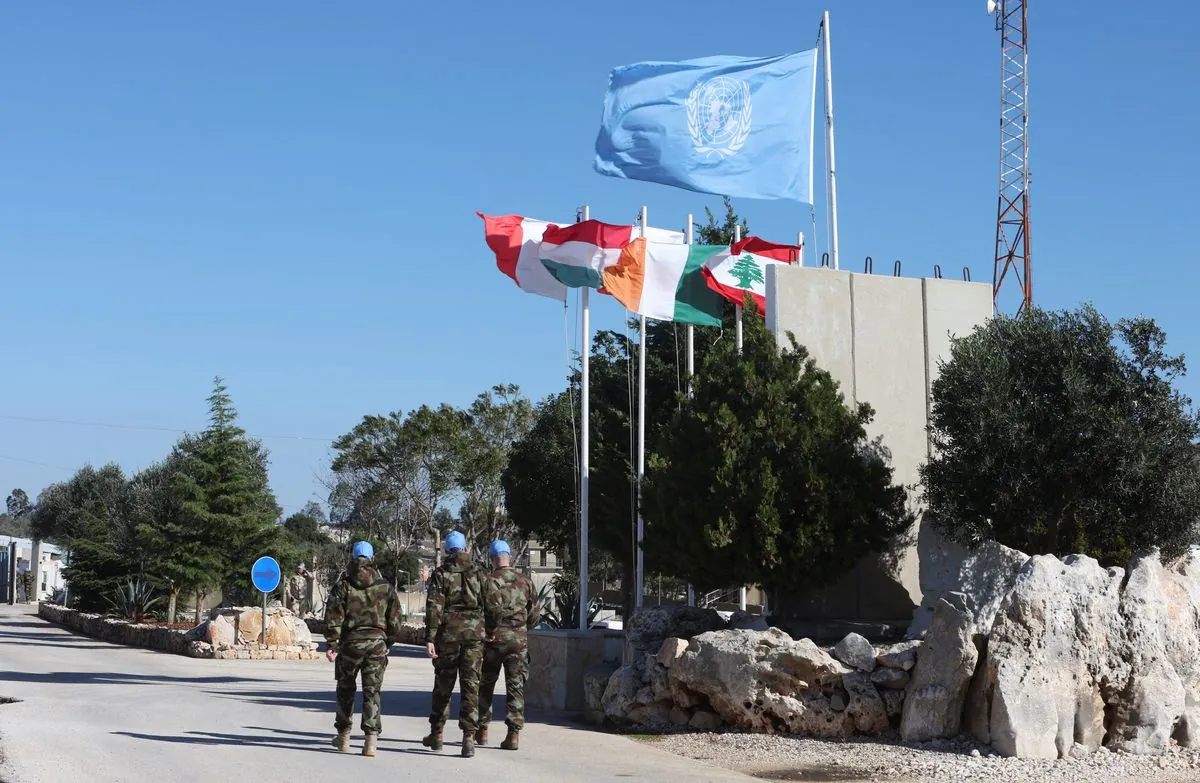In the volatile region of southern Lebanon, United Nations Interim Force in Lebanon (UNIFIL) peacekeepers find themselves in an increasingly precarious position. Established in 1978, UNIFIL's role has evolved from monitoring cease-fire violations to patrolling an active battlefront between Israel and the Lebanese militant group Hezbollah.
Since October 2023, the conflict has intensified, with daily exchanges of fire across the Blue Line, the unofficial demarcation between Lebanon and Israel established in 2000. Spanish Lieutenant Colonel José Irisarri describes the situation as unpredictable, with periods of calm suddenly erupting into "two days of nonstop fighting."
UNIFIL's presence serves as a crucial buffer in the region. The force, comprising troops from 48 countries, facilitates communication between Lebanese and Israeli militaries, aiming to prevent unintended escalations. However, UNIFIL officials acknowledge their limitations in the face of a potential all-out war.
The current conflict began on October 8, 2023, when Hezbollah launched attacks on Israel in solidarity with its Palestinian ally Hamas. Since then, the situation has remained tense, with fears of wider conflict peaking in the summer of 2024. On July 30, Israel assassinated a senior Hezbollah commander, followed by the heaviest exchange of fire on August 25.
UNIFIL's challenges extend beyond military tensions. The peacekeepers also provide humanitarian aid to civilians caught in the crossfire. In towns like Ebel El Saqi, Spanish engineers have been seen renovating children's playgrounds, a small gesture of normalcy amidst the chaos.
"Firefighters had to come from different towns to help us."
This statement refers to an incident where Israeli incendiary munitions reportedly scorched ancient olive groves, some of which were hundreds of years old, highlighting the conflict's impact on civilian livelihoods.
The peacekeepers' base, situated near the intersection of Syrian, Israeli, and Lebanese borders, offers a unique vantage point. From their guard towers, they observe Israeli military bunkers, Hezbollah firing positions, and the Israeli-occupied Golan Heights, captured in 1967.
Despite the dangers, UNIFIL continues its mission. With a budget of approximately $480 million for 2023-2024, the force remains committed to maintaining peace in a region where tensions run high and the threat of escalation looms constantly.
